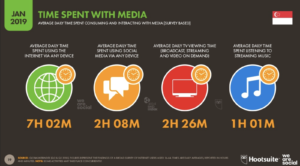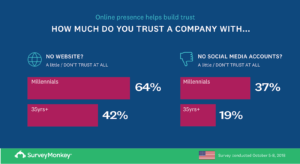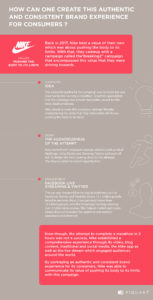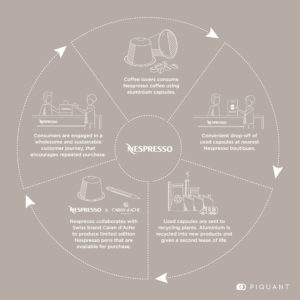Knowing Your Millennial Consumers
Many established companies face problems attracting millennial consumers and are having difficulties convincing this segment to purchase. How can brands create marketing plans and strategies that work with this segment? Let’s start with trying to understand how millennials think.
Millennials are defined as the generation born between 1980s to 1995. This group of people in Singapore grew up in an era where life was more comfortable than the previous generation, education was key and technology came into the picture. Thus, understanding them can help brands market better.
How does the spending behavior between various generations differ?

Statistics show that millennials readily spend on restaurants and electronics more than Gen X-ers and Baby Boomers. However, a consumer spending index study done in 2016 revealed that millennials pay approximately 23% to 27% less than Baby Boomers and Gen X-ers respectively, despite a higher number of purchases on retail goods and dining.
So how do millennials get a better bang for their buck as compared to Gen X and Baby boomers?
Considering that millennials are well connected, it is not surprising that they do extensive research before making any purchase. Being such savvy consumers, businesses need to keep abreast with what millennials value, think and like in order to maintain a sustainable consumer base amongst them.
Here are 3 insights we identified about millennials that would be valuable for businesses :
#1 Millennials are digitally savvy
Source: https://wearesocial.com/sg/digital-2019-singapore

As the generation that grew up along with technology, millennials are reported to spend an average range of 7 hours a day on the internet. Imagine the amount of information and content they are taking in at this rate! More than that, they are also the top users of social media. Both the internet and social media have made millennials very connected with their peers and brands, giving them access to a world of information at their fingertips. What impact does this have on brands and businesses?
Circles.Life made headlines after launching an open letter to its big boy competitors Singtel and Starhub. Its confrontational yet refreshing message came as a surprise to consumers who began to notice Circles.Life where it was previously unheard of. While this one-off marketing stunt stirred up public attention, Circles.Life continued to maintain an open yet consistent marketing strategy by leveraging on social media platforms for social listening and customer engagement. Organic conversations, feedback and product requests are just some examples of interaction between Circles.Life and its millennial customers.
For businesses to stay connected with millennials, basic steps you can begin with will be to keep your digital platforms updated. For websites, the simple act of including descriptions of your service offerings or photography of the products for sale can help potential customers search for information easily. One thing to keep in mind is to allow consumers to contact the company directly via telephone or email and regularly check your enquiry inbox and respond to any enquiries.
Deploying social media marketing is another powerful way to reach out to digitally savvy millennials. If possible, businesses should update their social media channels with relevant content periodically and activate its messaging functions in order to connect and build relationships with millennial consumers.
Social media has reportedly helped to nurture consumer relationships between businesses and millennial customers by serving as a digital touchpoint that allows instant communication flow. Social media has the power to engage consumers meaningfully and this serves as a catalyst to nurture potential and existing customer relationships. Thus, brands need to commit to maintaining their social media platforms and respond efficiently to any direct messaging.
#2 Millennials value authenticity and credibility

Consumers are exposed to advertising at every single moment. From traditional ads in the newspapers to digitalized advertising on Facebook, Google and influencer marketing, there is no shortage of content that is directed at millennial consumers. In response, millennials have learnt to desensitize themselves to these large amounts of stimulating content. As conscious consumers that know the power of marketing, they see through the superficial content and selectively pick out what they want to see or hear. Their heavy use of new media has conditioned them to be master fact-finders of information surrounding a brand, product or service. As such, most know enough to filter through the fluff and evaluate the authenticity and credibility of products and services. They tend to seek out information from a variety of sources and connect the data together with their experiences.
What is it about authenticity that millennials want? According to a study done in 2017, millennials were reported to associate authenticity with consistency. A company should feel consistent whether they are representing themselves in advertisements, in person or online. Any authentic brand should have a consistent identity throughout all that they do. Businesses should match their look and feel. What consumers see and hear about the business and what they experience must add up. In turn, this consistency translates into credibility for the business.
Here is an example of how Nike successfully created this authentic and consistent brand experience for consumers:

#3 Millennials tend to notice businesses that stand for certain social values
Millennials are a socially conscious bunch who look to steward social values. An article suggests that millennials see the brands they use as an extension of their personality and beliefs. By purchasing certain goods or services, millennials feel that they are supporting and furthering that particular social value. Compared to previous generations whose role as an activist was distinct from that as a consumer, millennials have combined these identities together. They have taken upon themselves the collective responsibility of fighting climate change, embracing sustainability and more. It is reported that millennials are willing to pay more for products and services that are dedicated to social good.

One perfect example is Nespresso, who successfully crafted a rewarding consumer journey for its coffee lovers with its recycling program. Beyond just drinking coffee, coffee lovers are now able to participate actively in recycling efforts when they return used aluminium capsules. These capsules are sent to specialist recycling plants where they are given a second lease of life. Nepresso paired up with Swiss brand Caran d’Ache to manufacture the 894 Nespresso Ballpoint, made out of its recycled aluminium. These ballpoint pens symbolise the successful integration of the values of sustainability and profitability, and the result is
a satisfying experience for consumers who desire to contribute socially through their purchases. Such tangible results drive consumers to make repeated purchases, thereby boosting Nespresso’s brand value and reputation.
What kind of social values are millennials looking out for? A good guide would be the ESG values, which can be broken down into values under Environmental, Social and Governance.
Environmental: Carbon Emissions, Energy Efficiency, Water Scarcity
Social (Human Rights, Labor Standards, Diversity)
Governance (Corporate Governance, Management Compensations, Corruption and Instability)
These ESG values sit on four social impact pillars that millennials desire for brands and businesses to take on. They are:
(1) to improve society by alleviating social problems,
(2) to prioritize social impact,
(3) be transparent and communicate to the public their efforts in doing so,
(4) to include their consumers in their social endeavours
Even if your brand does not actively support or integrate a social value into the business process, it helps to showcase any CSR efforts that your brand is involved in, thereby providing a positive perception of your brand to consumers. If you are doing good, be proud about it!
To sum it up, millennials are not that hard to understand. They simply navigate today’s world with a set of different tools (new media) and live in a world of digital connectedness and inclusivity. Their social values remain good and intact, the only difference being that they are more vocal about it. Put together, business owners would gain a lot from putting themselves in the shoes of millennials and taking time to understand what they are really looking for. Of course, the journey to implementing what millennials want into businesses remain no mean feat, but with brands and businesses that have succeeded in doing so, it goes to show that its not an impossible task.


